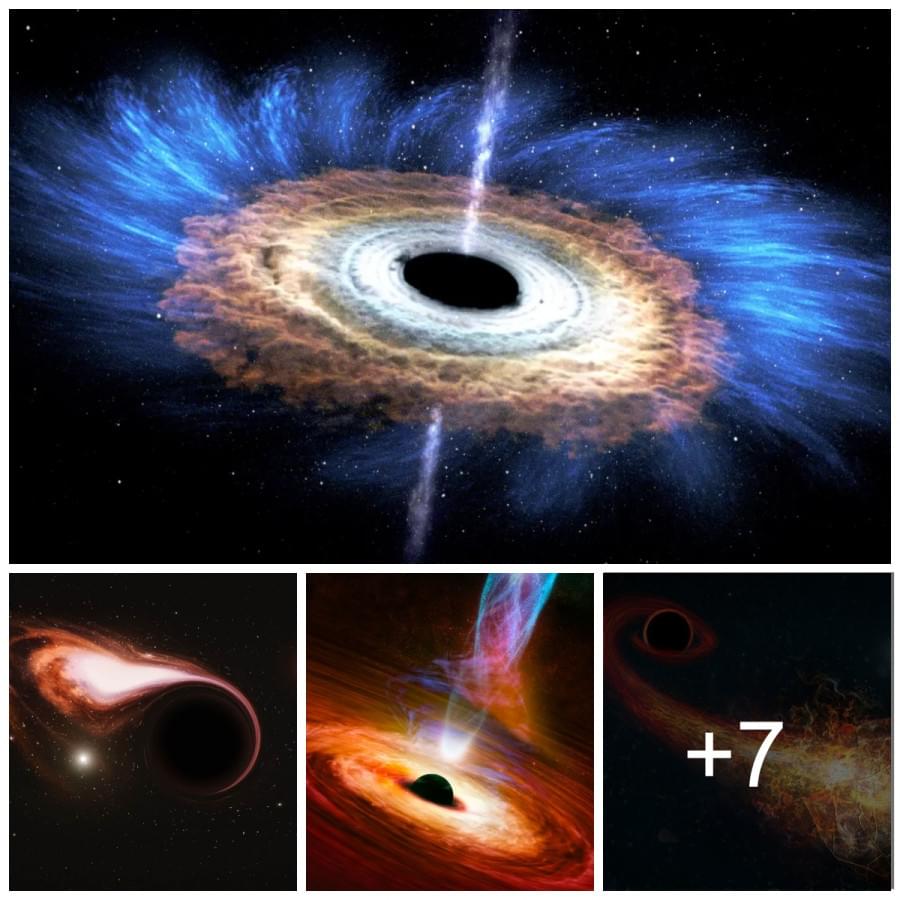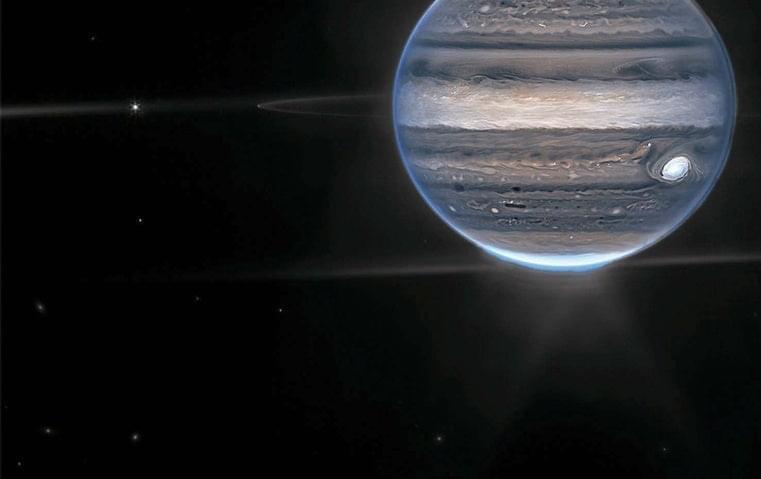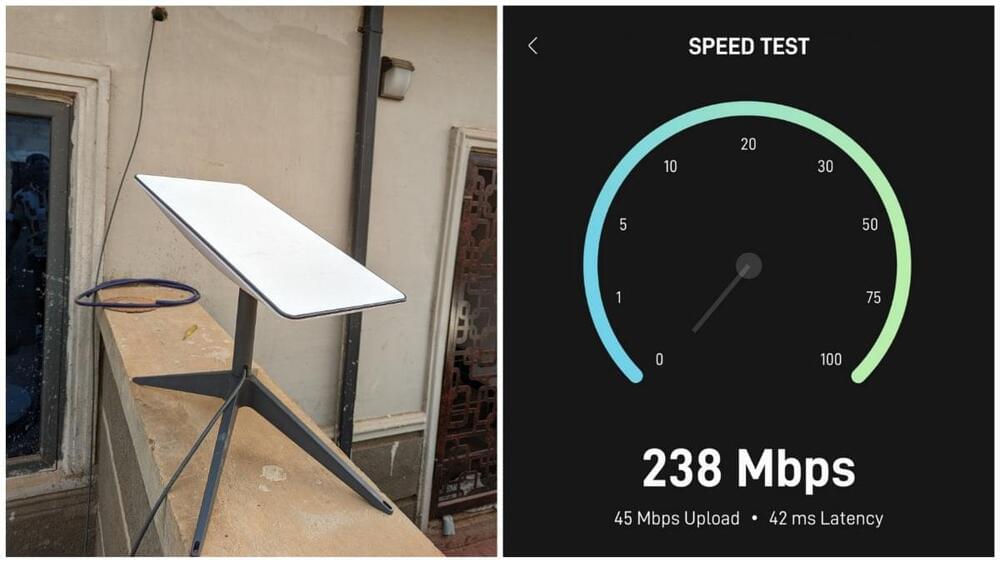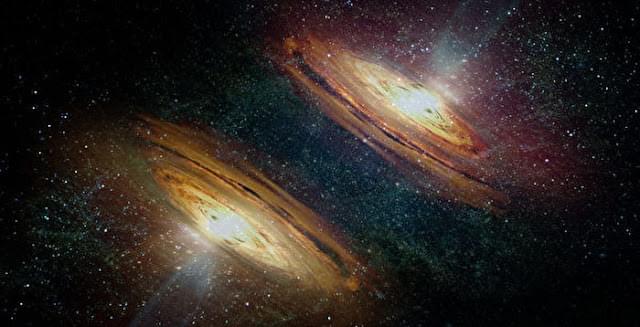CRISPR-Cas9 is a revolutionary gene editing tool that has wide spread implications for research, medical treatments, the environment, and ethics. In this pla…
Get the latest international news and world events from around the world.

The Universe’s End: How Black Holes Perish
Black holes are areas of space-time where gravity rules supreme: A black hole’s gravitational pull is so strong that nothing, not even light, can escape. They range in size from stellar-mass black holes, whose masses can range from five to 100 times that of the Sun, to supermassive black holes, whose masses can exceed a billion solar masses. Astronomers now believe that supermassive black holes exist at the center of most galaxies. (A notable exception to this rule is M33, which appears to lack a central supermassive black hole despite being the third largest member of our Local Group.)



Nigeria becomes the first country in Africa to have access to SpaceX Starlink, Engineer is ‘pretty impressed’ by the high-speed internet service
SpaceX Starlink Internet service will soon be available across the West African country of Nigeria, according to Nigeria’s Minister of Communications and Digital Economy Isa Ali Pantami. SpaceX already delivered some Starlink user terminals to the country to commence services. “As part of the partnership, SpaceX is to provide broadband access across the whole of Nigeria, enabling nationwide access to broadband connectivity way ahead of the December 2025 schedule, as outlined in our national broadband plan,” said Pantami. “With this collaboration with SpaceX’s Starlink, Nigeria is set to be the first African country to introduce the service.” Nigeria’s goals was to cover 90% of the country’s population with reliable internet access by 2025, the goal is now attainable because the Starlink satellite network is easy to set up and capable of beaming high-speed internet to rural and remote communities. SpaceX’s official Starlink Coverage Map says the service is ‘coming soon’ to Nigeria, users must input their address on the website to find out if its already available in their specific area.
On the partnership with SpaceX and StarLink. They have now commenced the deployment of their facilities in Nigeria is the first African country to reach that partnership & also approval for the deployment. pic.twitter.com/QamCN2AG4z — Prof. Isa Ali Ibrahim (@ProfIsaPantami) December 29, 2022
The company sent an email to potential customers living in Nigeria, stating that the service is available for pre-order. “Order now to reserve your Starlink expects to expand service in your area [Nigeria] in 2023. You will receive a notification once your Starlink is ready to ship,” the email says. The hardware to access the satellite internet service costs $600 [N438,000] in Nigeria with an internet subscription of $43 [N31,390] per month.

Consumer Health: Do you know the symptoms of glaucoma?
January is National Glaucoma Awareness Month, which makes this a good time to learn more about treating this group of eye conditions.
About 3 million people in the U.S. have glaucoma, and it’s the second-leading cause of blindness worldwide, according to the Centers for Disease Control and Prevention.
Glaucoma is a group of eye conditions that damage the optic nerve, often due to abnormally high pressure in your eye. Elevated eye pressure is due to a buildup of the fluid that flows throughout the inside of your eye. When this fluid is overproduced or the drainage system doesn’t work properly, the fluid can’t flow out at its normal rate and eye pressure increases.

Russian hackers reportedly targeted three U.S. nuclear research laboratories | English News | WION
A Russian hacking team known as Cold River targeted three nuclear research laboratories in the United States this past summer, according to internet records reviewed by Reuters and five cyber security experts.
#unitedstates #russia #wion.
About Channel:
WION The World is One News, examines global issues with in-depth analysis. We provide much more than the news of the day. Our aim to empower people to explore their world. With our Global headquarters in New Delhi, we bring you news on the hour, by the hour. We deliver information that is not biased. We are journalists who are neutral to the core and non-partisan when it comes to the politics of the world. People are tired of biased reportage and we stand for a globalised united world. So for us the World is truly One.
Please keep discussions on this channel clean and respectful and refrain from using racist or sexist slurs as well as personal insults.
Check out our website: http://www.wionews.com.
Connect with us on our social media handles:
Facebook: https://www.facebook.com/WIONews.
Twitter: https://twitter.com/WIONews.
Follow us on Google News for latest updates.

Scientists Have Decrypted the “Mechanical Code” of DNA
An international team of researchers, led by Durham University in the UK, has uncovered previously unknown ways in which nature encodes biological information in a DNA
DNA, or deoxyribonucleic acid, is a molecule composed of two long strands of nucleotides that coil around each other to form a double helix. It is the hereditary material in humans and almost all other organisms that carries genetic instructions for development, functioning, growth, and reproduction. Nearly every cell in a person’s body has the same DNA. Most DNA is located in the cell nucleus (where it is called nuclear DNA), but a small amount of DNA can also be found in the mitochondria (where it is called mitochondrial DNA or mtDNA).

Big Bang may have created’mirror universe’ where time runs backwards
In November 2018, three physicists from the Perimeter Institute for Theoretical Physics in Waterloo, Canada, offered an unusual idea: from the Big Bang not only the Universe we know but also ‘its mirror image’ created.
Twin spiral galaxies and stars in space. NASA provided picture elements. A universe that extends backward in time. From our perspective, the Universe “after the Big Bang” moves… backwards.
The physicists Latham Boyle, Keran Finn, and Neil Turok suggested in a Physical Review Letters article that the Universe we live in is merely a fragment of the true Universe and that if so, dark matter and inflation would no longer make sense.